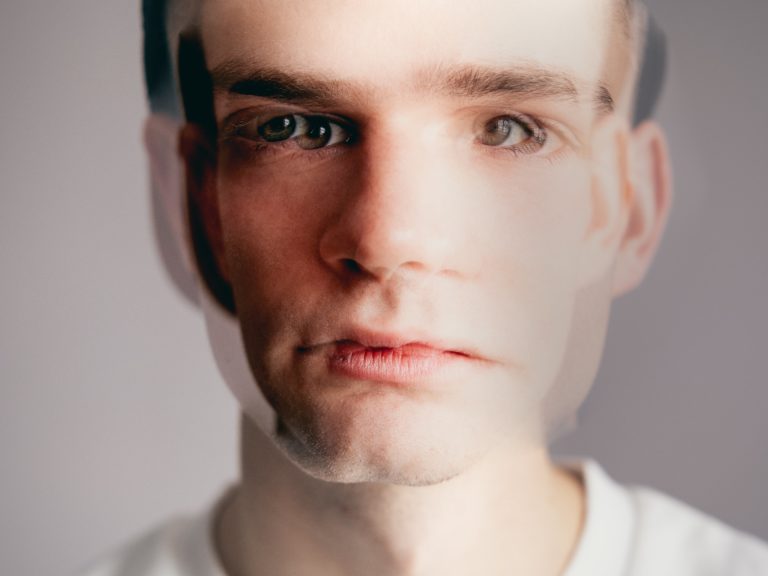Since the fifth edition of the Diagnostic and Statistical Manual of Mental Disorders (DSM-5) was published in 2013, the term undifferentiated schizophrenia has fallen out of favor among clinicians. However, learning what this term referred to can give you greater insights into what it means to have schizophrenia.
If you or a loved one are showing signs of Schizophrenia, our residential Schizophrenia treatment programs in Nashville, Tennessee can help. Call us now at 629-217-2658 or verify your insurance now.
Schizophrenia Symptoms
To understand undifferentiated schizophrenia, it can be helpful to first take a step back and review a few fundamental facts about schizophrenia itself.
Schizophrenia is a complex mental health condition that involves impairments in how a person perceives their environment and interacts with others. As established in the DSM-5, schizophrenia is characterized by the following five types of symptoms:
- Hallucinations: Seeing, hearing, or otherwise perceiving things that don’t exist.
- Delusions: Holding firmly to beliefs that can easily be disproved or that have no basis in reality
- Disorganized speech: Inability to express one’s thoughts in a logical and understandable manner
- Grossly disorganized or catatonic behaviors: Acting in a strange manner, such as exhibiting child-like silliness or unprovoked aggression
- Negative symptoms: Diminished expressiveness, difficulty experiencing joy, and lack of motivation for interacting with others
To be diagnosed with schizophrenia today, a person must have two or more of these five symptom types, at least one of which must be hallucinations, delusions, or disorganized speech.
What Is Undifferentiated Schizophrenia?
The fourth edition of the DSM, which was in effect from 1994-2013, included criteria for five subtypes of schizophrenia:
- Paranoid schizophrenia: Hallucinations or delusions, but none of the other symptom types
- Catatonic schizophrenia: Lack of motivation, unwillingness to speak, purposeless movements, immobility, and repeating the words or movements of others
- Disorganized schizophrenia: Disorganized speech and behavior, as well as flat affect (lack of vocal or facial expressiveness)
- Residual schizophrenia: Primarily negative symptoms
- Undifferentiated schizophrenia: At least one of the non-negative symptom types, but not meeting the criteria for a diagnosis of paranoid, catatonic, or disorganized schizophrenia
Signs of Undifferentiated Schizophrenia
Going by the DSM-4 criteria, someone who had undifferentiated schizophrenia may have shown signs such as:
- Seeing light patterns, people, or objects that aren’t really there
- Hearing voices, music, or other sounds that they believe are either coming from an external source or from inside their own head (but aren’t their own thoughts)
- Claiming that they have some special hidden talent or magical powers
- Believing that they are being persecuted by their spouse, other loved ones, or someone else in their life
- Thinking they are in a relationship with a celebrity or other prominent person who they have never actually met
- Answering questions with unrelated statements, or with answers that start out on the correct topic but quickly veer in an unexpected direction
- Using words because of their sounds, rhythms, or rhymes, instead of their definitions
- Using words made-up words or otherwise speaking in an indecipherable manner
- Dressing in an outlandish or otherwise bizarre fashion
- Acting in a way that is far outside cultural norms and standards
- Demonstrating a complete lack of motivation or interest in the world around them
Today, someone who exhibited these types of signs would simply be diagnosed with schizophrenia, instead of undifferentiated schizophrenia.
It is important to note that while the terminology that clinicians use to describe this mental health disorder has changed over the years, the signs and symptoms that qualify a person for a diagnosis of schizophrenia are virtually the same in the DSM-5 as they were in the DSM-4.
Treatment Options for Undifferentiated Schizophrenia
As is the case when treating all types of mental illnesses, effective care for schizophrenia should reflect personal factors such:
- The patient’s treatment history
- The type and severity of their symptoms
- How these symptoms have impacted their life
- If they have any co-occurring mental or behavioral health concerns
After considering these and other relevant factors, a treatment provider may recommend that the patient begin in one of the following levels of care:
How Is Undifferentiated Schizophrenia Treated?
Taking into account the patient’s needs and the level of care they are currently in, their customized schizophrenia treatment plan may include prescription medication and therapy.
Various types of medications for mental health may be beneficial for someone who has schizophrenia. The most common choices include:
- Antipsychotics such as aripiprazole (Abilify) and risperidone (Risperdal)
- Mood stabilizers such as lithium and valproic acid
- Antidepressants such as fluoxetine (Prozac), paroxetine (Paxil), and sertraline (Zoloft)
The types of therapy that may be included in a comprehensive schizophrenia treatment plan include:
- Genetic testing
- Individual, group, and family therapy
- Cognitive behavioral therapy (CBT)
- Dialectical behavior therapy (DBT)
- Cognitive enhancement therapy (CET)
- Neurofeedback
- Holistic therapies
- Expressive arts therapy
Before a person completes their time in treatment, they should receive a discharge plan to guide their continued progress. This plan can include referrals to other providers, information about peer support groups, and other resources that can help the individual build on the progress they made while they were receiving care.
Find Treatment for Undifferentiated Schizophrenia in Nashville
If someone that you care about has been exhibiting the signs and symptoms of undifferentiated schizophrenia, Arbor Wellness may be the ideal place for them.
At our schizophrenia treatment center in Nashville, Tennessee, your loved one can receive customized care and comprehensive support from a team of skilled and dedicated professionals. We will work closely with your loved one to understand the full scope of their needs and deliver the focused services that are best for them.
To learn more about schizophrenia treatment at Arbor Wellness or to schedule a free assessment for your family member, please visit our Admissions page or call us today.










